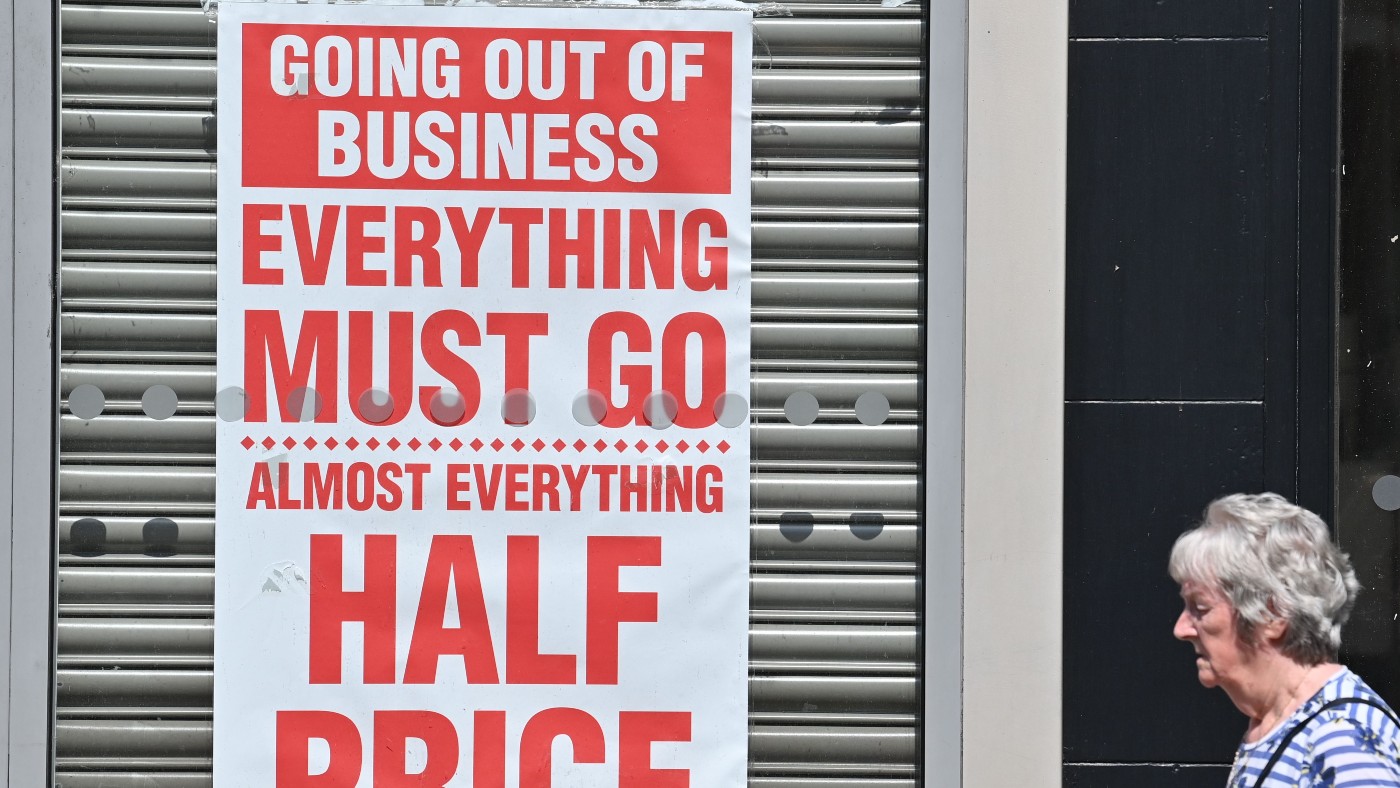Inflation crisis: is a recession the only answer?
Experts suggest sharp slowdown may be necessary to avoid economic spiral

A free daily email with the biggest news stories of the day – and the best features from TheWeek.com
You are now subscribed
Your newsletter sign-up was successful
Tory ministers have a long record of making rather callous statements about the economy, said Paul Waugh in The i Paper.
Norman Lamont famously claimed that unemployment was “a price well worth paying” to beat inflation. On the same theme, John Major declared that “if it isn’t hurting, it isn’t working”.
In the wake of the Bank of England’s decision to hike interest rates by half a point to 5% last week – heaping financial pain on mortgage holders – Rishi Sunak reached instead for an “earnest and soothing” tone. “It is going to be OK and we are going to get through this,” he told workers at an Ikea warehouse.
The Week
Escape your echo chamber. Get the facts behind the news, plus analysis from multiple perspectives.

Sign up for The Week's Free Newsletters
From our morning news briefing to a weekly Good News Newsletter, get the best of The Week delivered directly to your inbox.
From our morning news briefing to a weekly Good News Newsletter, get the best of The Week delivered directly to your inbox.
The PM, who has made halving inflation by the end of the year one of his “key pledges”, reassured his audience that he was “totally, 100% on it”. But with inflation still stubbornly running at 8.7% in the UK, is there anything Sunak can do about it? And are we, in fact, going to be OK?
‘Power lies with the Bank of England’
Inflation is “largely outside ministerial control”, said The Times. There is little that can be done in Whitehall to tamp it down, “aside from arresting rises in public sector pay”. This hasn’t stopped the Government from “attempting to look busy”. Chancellor Jeremy Hunt has called in bank bosses, food producers and industry watchdogs to urge them to keep down prices and to agree steps to ease the pain for consumers. This may help “concentrate minds”. But the truth is that real power “lies two miles to the east”, in the Bank of England. Inflation “will come down as higher interest rates take hold, but not quickly”. That will require “painful interest rates for months to come”.
For Sunak, all this could hardly be “a worse launchpad for a period of important electioneering”, said Toby Helm in The Observer. More than 1.4 million fixed-rate mortgage customers will come off their deals this year, and will face significant hikes; the average increase will be £2,700 per year. In seats such as Selby in North Yorkshire, where one of three upcoming by-elections will take place, many took out large mortgages during the low-interest years.
‘Sharp slowdown and higher unemployment’
There is “a lot of anger” now. It’s not even clear that the medicine will work, said Sean O’Grady in The Independent. The usual solution to inflation is to take money out of the economy by making borrowing more expensive. But the main problems faced by Britain are not caused by “cheap money”. They’re caused by a shortage of goods and labour, thanks to Brexit, Covid, early retirement and the war in Ukraine. The Bank can’t do anything about those: all it can do is wallop a relatively small number of mortgage holders.
A free daily email with the biggest news stories of the day – and the best features from TheWeek.com
Even so, it must press ahead, said Martin Wolf in the FT. Wage-price spirals are already taking hold. We won’t get back to 2% inflation without “a sharp slowdown and higher unemployment” – in short, without a recession. The only alternative would be for the UK to abandon its commitment to a stable currency, as in the 1970s. That would be “an unpardonable – possibly even incurable – folly”.
-
 5 calamitous cartoons about the Washington Post layoffs
5 calamitous cartoons about the Washington Post layoffsCartoons Artists take on a new chapter in journalism, democracy in darkness, and more
-
 Political cartoons for February 14
Political cartoons for February 14Cartoons Saturday's political cartoons include a Valentine's grift, Hillary on the hook, and more
-
 Tourangelle-style pork with prunes recipe
Tourangelle-style pork with prunes recipeThe Week Recommends This traditional, rustic dish is a French classic
-
 Currencies: Why Trump wants a weak dollar
Currencies: Why Trump wants a weak dollarFeature The dollar has fallen 12% since Trump took office
-
 Is the US in a hiring recession?
Is the US in a hiring recession?Today's Big Question The economy is growing. Job openings are not.
-
 Elon Musk’s starry mega-merger
Elon Musk’s starry mega-mergerTalking Point SpaceX founder is promising investors a rocket trip to the future – and a sprawling conglomerate to boot
-
 TikTok: New owners, same risks
TikTok: New owners, same risksFeature What are Larry Ellison’s plans for TikTok US?
-
 Will SpaceX, OpenAI and Anthropic make 2026 the year of mega tech listings?
Will SpaceX, OpenAI and Anthropic make 2026 the year of mega tech listings?In Depth SpaceX float may come as soon as this year, and would be the largest IPO in history
-
 Leadership: A conspicuous silence from CEOs
Leadership: A conspicuous silence from CEOsFeature CEOs were more vocal during Trump’s first term
-
 Ryanair/SpaceX: could Musk really buy the airline?
Ryanair/SpaceX: could Musk really buy the airline?Talking Point Irish budget carrier has become embroiled in unlikely feud with the world’s wealthiest man
-
 Powell: The Fed’s last hope?
Powell: The Fed’s last hope?Feature Federal Reserve Chairman Jerome Powell fights back against President Trump's claims